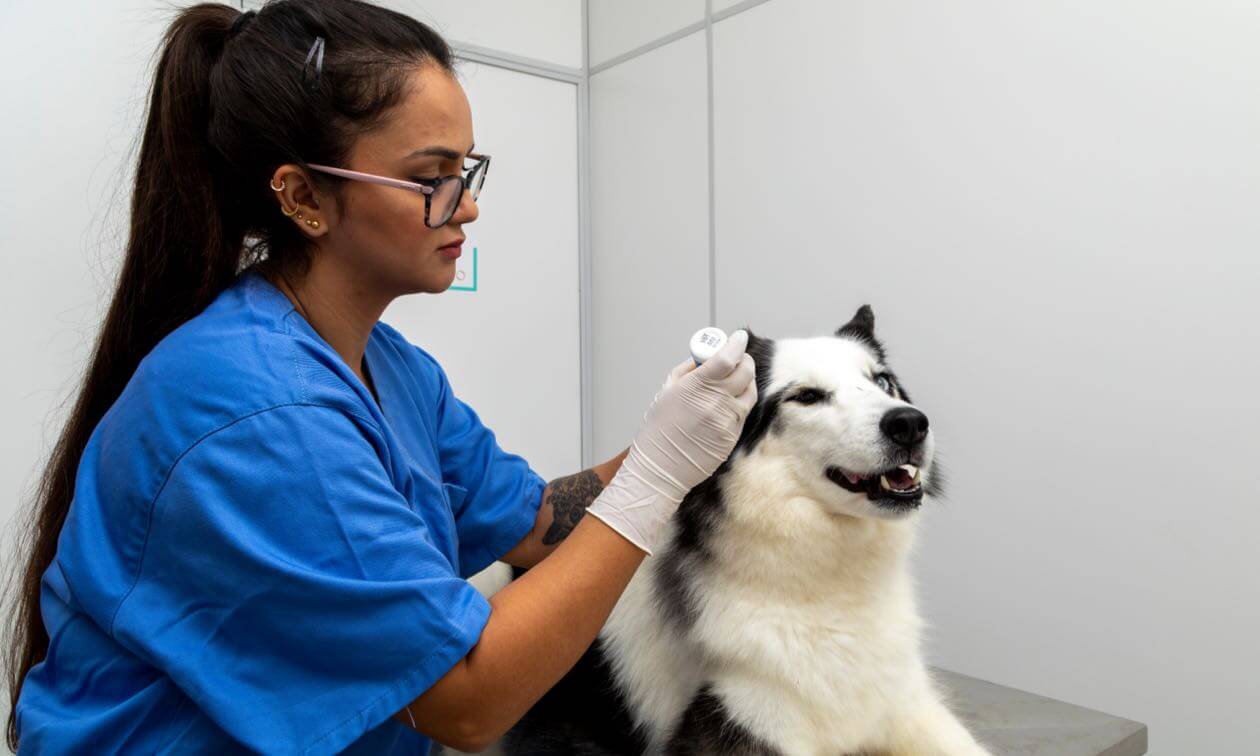Vaccination Guidelines From Your Trusted Veterinarian
Vaccination guidelines provided by your relied on vet play a critical duty in protecting your family pet's wellness and well-being. In addition, resolving usual mistaken beliefs bordering injections can better boost pet dog owners' confidence in these precautionary measures.

Value of Vaccinations
Vaccinations play a crucial role in safeguarding pet dogs versus a variety of avoidable diseases. By promoting the body immune system to acknowledge and fight specific microorganisms, vaccines dramatically decrease the incidence of infectious illness that can impact a pet's wellness and long life. Not just do inoculations safeguard specific pets, but they additionally add to herd immunity, consequently decreasing the total frequency of diseases in the animal population.
Timely vaccinations aid to mitigate the spread of illness such as rabies, parvovirus, and distemper, which can have severe repercussions for both pets and humans. Vaccinations are usually a requirement for boarding centers, grooming solutions, and pet dog parks, making them essential for those that want to mingle their pets.

Core Vaccines for Animals
While the specific inoculation requirements of family pets can differ based upon private elements, core injections are generally advised to protect against one of the most usual and severe diseases (Pet Vaccinations). Core vaccinations are those regarded important for all family pets, despite their way of living or geographic place, as they safeguard against possibly fatal and highly transmittable ailments
For canines, the core vaccines include those for canine distemper, parvovirus, adenovirus (liver disease), and rabies. Adenovirus can result in liver illness, while rabies is a zoonotic disease that presents a danger to both humans and family pets.
In pet cats, core vaccinations encompass feline panleukopenia, feline calicivirus, feline herpesvirus (rhinotracheitis), and rabies. Feline panleukopenia is an extremely transmittable viral condition that impacts the immune system and intestines. Calicivirus and herpesvirus are major contributors to upper respiratory infections in felines, while rabies remains an essential worry for public wellness.
Consult with your veterinarian to ensure your animals receive their core vaccinations on routine.
Non-Core Vaccines Explained
Non-core vaccinations are customized to resolve specific threats associated with an animal's setting, way of life, and direct exposure to specific illness. Unlike core injections, which are generally recommended for all animals, non-core vaccinations are taken into consideration based on individual conditions. These injections are specifically vital for family pets that may experience unique pathogens due to their geographical area, traveling practices, or tasks.
Instances of non-core injections include those for Bordetella bronchiseptica, which is linked to kennel cough, and Lyme disease, brought on by ticks. Pet dogs that description frequently engage with various other pets, such as those in boarding facilities, canine parks, or grooming environments, may gain from Bordetella inoculation. If you live in an area where Lyme illness is widespread, vaccinating against this condition can be a sensible choice for outdoor-loving dogs.
Other non-core vaccines might consist of those for leptospirosis, canine flu, and feline leukemia, depending upon the specific risk elements present. It is crucial to have an extensive conversation with your veterinarian about your pet's way of living and the possible requirement for these vaccinations, guaranteeing a tailored vaccination strategy that finest shields your furry buddy.
Inoculation Arrange Introduction

As pets mature, it is very important to abide by the advised booster inoculations. Pet Health Checkup. For grown-up animals, core injections are normally offered every one to 3 years, depending on the details vaccine and local guidelines. Non-core injections might be advised based on way of living elements and regional condition occurrence, requiring a customized strategy
Regular vet examinations are vital for updating vaccination timetables. Your veterinarian can give advice on the most proper immunizations for your pet, considering age, health status, and ecological risks. By staying aggressive and informed, pet dog proprietors can guarantee their furry companions receive timely and reliable vaccinations, thus securing their health and well-being throughout their lives.
Common Misconceptions Regarding Vaccinations
Misconceptions concerning pet dog inoculations can cause confusion and hesitation amongst animal proprietors relating to the booster shot have a peek at these guys procedure. One common misconception is that vaccinations are unnecessary for interior pet dogs. While it's real that indoor animals face reduced threats, they are not completely immune to diseases, as pathogens can be presented through different means, consisting of human garments and various other pets.
One more false impression is that injections can cause the illness they intend to protect against. In truth, many injections consist of suspended or undermined microorganisms, which can not trigger disease in healthy and balanced animals. Some pet dog proprietors additionally believe that their animals must not be immunized if they are currently healthy and balanced; nevertheless, you can find out more vaccinations are an aggressive action that assists prevent the onset of ailment.
Furthermore, lots of animal proprietors fear that vaccinations will lead to long-term health and wellness issues. The benefits of inoculation-- shielding animals from potentially deadly conditions-- much surpass the dangers.
Verdict
In summary, adherence to vaccination guidelines is critical for ensuring the health and longevity of pet dogs. Eliminating common myths bordering inoculations even more enhances the relevance of informed decision-making in pet dog care.
Not only do inoculations shield private animals, but they additionally contribute to herd resistance, consequently reducing the overall prevalence of illness in the pet dog population.
Misconceptions about animal vaccinations can lead to complication and reluctance amongst family pet owners regarding the immunization procedure. While it's true that indoor family pets encounter reduced dangers, they are not totally immune to conditions, as virus can be presented via various ways, consisting of human clothing and other animals.
Some animal proprietors also believe that their family pets need to not be vaccinated if they are currently healthy and balanced; however, vaccinations are an aggressive measure that helps avoid the onset of health problem.
The advantages of inoculation-- shielding pets from possibly life-threatening conditions-- much outweigh the threats.